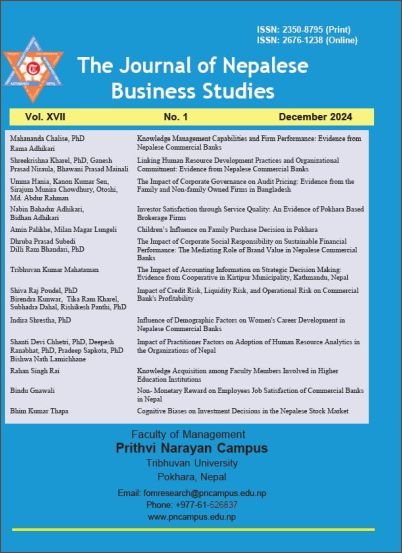Cognitive Biases on Investment Decisions in the Nepalese Stock Market
DOI:
https://doi.org/10.3126/jnbs.v17i1.75316Keywords:
Anchoring bias, behavioral finance, disposition effect, herding behavior, investment decision-makingAbstract
This paper analyzes how behavioral biases impact investor decision-making regarding investment opportunities in Nepal. Purposive sampling was adopted, with participants comprising investors in the Nepalese stock market. An explanatory research design was used, employing a quantitative data collection method. The analysis was conducted using the structural equation modeling approach with the SPSS Amos program. The results demonstrated high reliability, discriminant validity, and convergent validity of the developed scale. Behavioral biases such as herding behavior, overconfidence, anchoring, and the disposition effect were found to have positive influences on investment decisions. These findings highlight the need to reduce biases in investment strategies to enhance the quality of decision-making. By incorporating Nepalese market data, this study addresses a significant gap in the literature on behavioral finance. It also provides valuable insights for investors, improving their perceptions and decision-making processes.
Downloads
Downloads
Published
How to Cite
Issue
Section
License
Copyright (c) 2024 Journal of Nepalese Business Studies

This work is licensed under a Creative Commons Attribution 4.0 International License.
This license allows reusers to distribute, remix, adapt, and build upon the material in any medium or format, so long as attribution is given to the creator. The license allows for commercial use.




